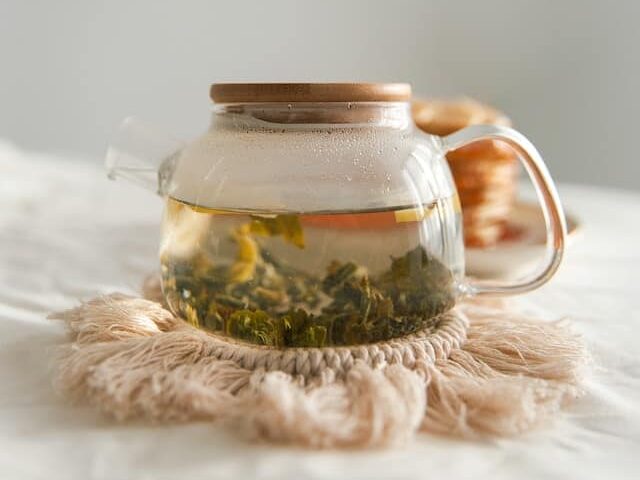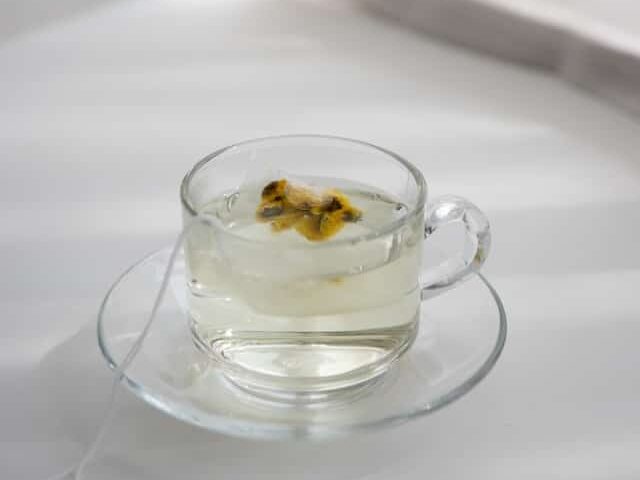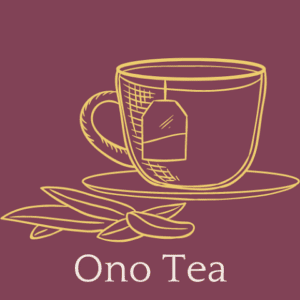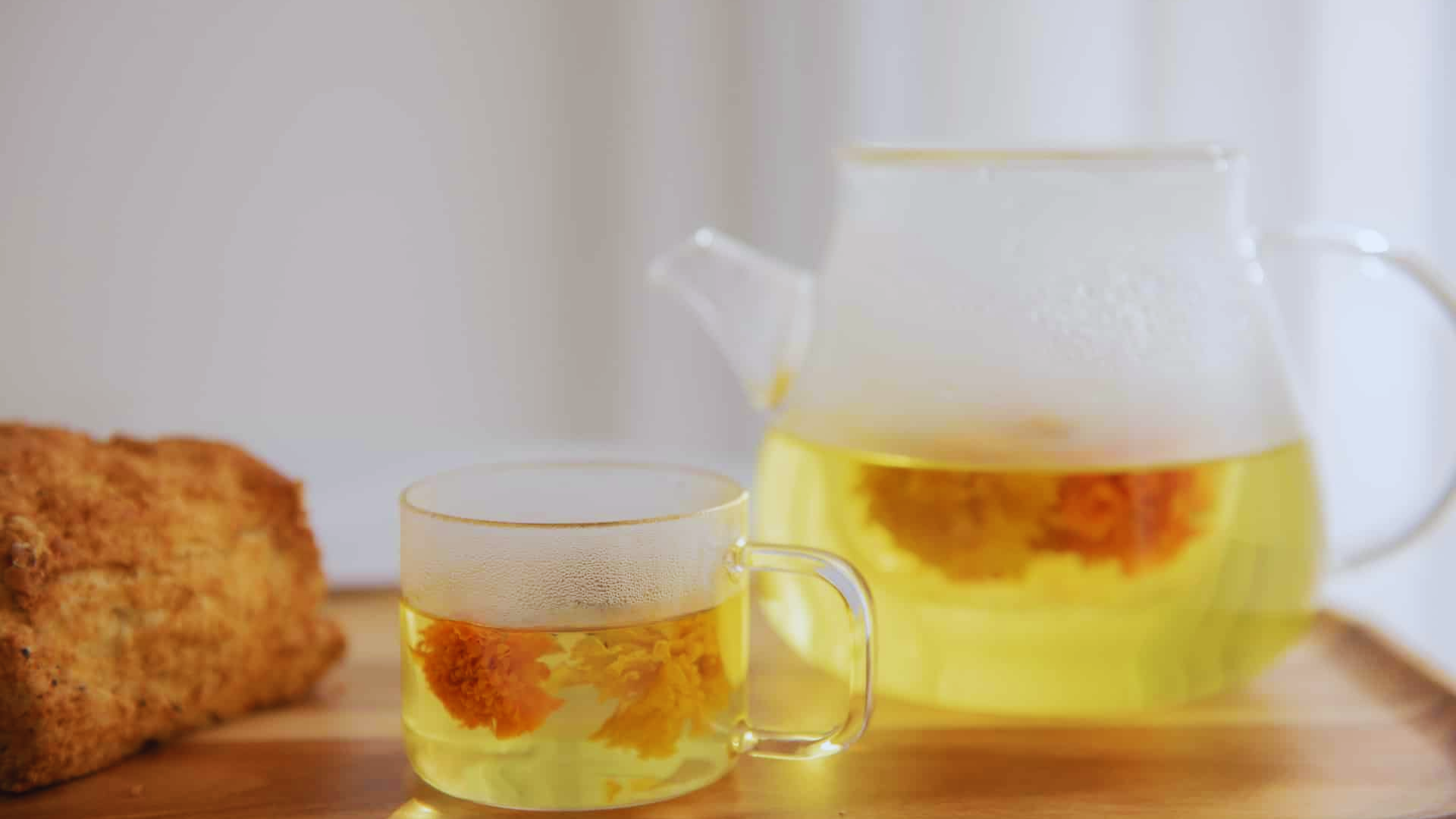Chrysanthemum tea is a popular refreshment drink in Chinese medicine. Preparing the tea is easy—just steep dried chrysanthemum flowers in hot water. In some recipes, other herbs and flowering plants are present to enhance flavor and aroma.
Chrysanthemum tea is considered a caffeine-free beverage. It is a floral-infused herbal tea made from the dried flowers of a chrysanthemum plant (Chrysanthemum morifolium or Chrysanthemum indicum). In China, chrysanthemum flowers are used to brew a soothing herbal drink for various health benefits.
While it is a functional herbal drink, it is also visually appealing. The beautiful golden color and light floral aroma contribute to its appeal as a refreshing beverage.
Chrysanthemum tea leaves or flowers provide relief in many conditions. However, not all benefits have been supported by scientific research. Here in this article, we have thoroughly discussed the hows and whys behind the making and usage of this tea.
Chrysanthemum Tea Caffeine Content
While the tea lacks caffeine, it is highly appreciated for its refreshing flavor and nutritional properties. Its calming flavor and aroma are favorites of many.
The caffeine-free tea offers a unique blend of vitamins and minerals, and the low-calorie attribute makes Chrysanthemum tea a suitable drink for people on a diet. Typically, a cup of chrysanthemum tea has only 12 calories. The little to no macronutrients like carbs and protein contribute to its low-calorie content. However, significant amounts of antioxidants, flavonoids, and caffeic acid have a great impact on health and wellness.

The Popularity of Chrysanthemum Tea
Apart from China, chrysanthemum tea is also fairly popular in other Asian countries, where it is brewed with multiple infusion methods. Further, it is seeping into the Western diet as well, where it is a nutritional alternative to traditional caffeinated tea.
Unlike the strong medicinal scent, the chrysanthemum tea taste is less intense with a sweet aftertaste. While people find the taste subtly sweet, various brewing methods and additional ingredients give the blend a new taste. For people, who are not into strong flavored teas like rose or jasmine herbal teas, chrysanthemum is a great option.
Does Chrysanthemum Tea Make You Sleepy?
Chrysanthemum tea is popular for its sleep-inducing and deep relaxation on the nerves. Aside from Kava Kava and St. John’s wort, iced chrysanthemum tea has been used to treat insomnia patients in Korea for decades.
One of the phenolic extracts from Chrysanthemum flowers is apigenin, which is a mild sedative in high concentration. The compound is thought to interact with sleep-inducing receptors in the medulla. However, each individual can have diverse experiences with sedation as everybody has a different physiology.
When it comes down to popularity and personal preference, chamomile or lavender tea is more enjoyable for its calming effects than this tea.
It is worth noting that, unlike other traditional teas, it has zero caffeine content that can potentially interfere with sleep induction. Therefore, drinking chrysanthemum tea before bed or in the evening is better for those yearning for a deep, relaxing slumber.
How to Make Chrysanthemum Tea
To make your own chrysanthemum tea, you need the following ingredients:
- 5–10 dried Chrysanthemum flowers
- Hot water
- Honey or sugar (optional)
Procedure
- Rinse the dried flowers with cold water to get rid of dirt or any other impurities. Place the rinsed flowers in your favorite cup or infuser teapot.
- Boil fresh water in a kettle and cool it down afterward. Avoid using boiling water for infusion purposes. Keep the water’s temperature around 200°F.
- Pour the hot water into the cup filled with flowers and let it steep for 2–3 minutes. You can prolong the steeping time to achieve your desired strength. Here, you can add sugar or honey if you want.
- Now, strain the infused tea with a tea strainer to separate the dried flowers. This results in a pale or bright yellow color liquid with a light floral aroma.
- You can serve the tea hot or chilled, as you like. Enjoy your homemade hot or iced tea!
Also, feel free to experiment with different flavor-enhancing ingredients like ginger, lemon, or mint. In Korean and Japanese culture, the tea also contains black or green tea for customizing the flavor.
Health Benefits of Chrysanthemum Tea
Chrysanthemum tea is widely popular in traditional Chinese medicine for treating various ailments. A few of the health benefits are scientifically correct, but many physiological effects need more research for confirmation.
- Stress relief: As mentioned earlier, you can drink Chrysanthemum tea for stress relief. It is a refreshing nutritional drink that promotes peaceful sleep and calms the mind.
- Boosts immunity: The presence of vitamin C strengthens immune functions in viral and bacterial infections. Especially when you have a cold, where blocked and runny noses are common symptoms, this tea can be a worthwhile drink.
- Detoxifies the body: Another potential benefit is its detoxification ability which boosts liver health. By eliminating toxins and oxidative stress from the body, it cleanses the liver, blood, and skin.
- Reduces inflammation: When having acne and or other inflammatory skin conditions
, the anti-inflammatory properties of Chrysanthemum tea can heal your skin if made routine.
- Protects from UV damage: Chrysanthemum tea also bears lutein and zeaxanthin, antioxidants that protect the eyes from UV damage. Regular usage of this tea can reduce the risk of age-dependent wye diseases.
- Promotes diuresis: Chrysanthemum tea can be a healthier alternative to medicinal diuretics.
- Lowers blood pressure: Though fennel and nettle are more promising for reducing blood pressure, this one also has significant evidence to assist cardiac health.
In summer, when bodies can overheat, chrysanthemum tea can serve as an instant refreshment for cooling off.

Chrysanthemum Tea Side Effects
Chrysanthemum tea benefits are only one part of the picture; it is not all devoid of side effects. There is one significant complication which is allergic reactions.
Allergies caused by Chrysanthemum tea are characterized by itching, redness, swelling, and pain. It also enhances the skin’s sensitivity to sunlight, leading to a higher risk of sunburn. Further, those allergic to ragweed should also avoid chrysanthemum, as it can exacerbate allergic reactions.
Additionally, chrysanthemum tea can interact with blood thinners, immunosuppressants, antipsychotics, and sedatives. Therefore, always consult with herbal specialists or healthcare providers before considering herbal supplements.
It is also important to note that all the research related to its benefits has focused on potential short-term effects. There is not enough research on the safety of its long-term use. Thus, consider moderation when adding this herbal tea to your routine.
Conclusion
The health benefits of chrysanthemum tea are too numerous to mention. From fighting a sore throat and cough to detoxifying blood, reducing blood pressure, and promoting sleep, its uses are endless.
Overall, if you want a versatile herbal beverage that’s caffeine-free and won’t keep you up at night, chrysanthemum tea is worth a try. However, check if you have other existing ailments that can interfere with its herbal drink.
So, before starting any herbal tea regimen like this one, always seek guidance from your healthcare provider. Healthcare providers equipped with Chinese medicine treatments can give you the safest regimen.
Sources
- https://www.hindawi.com/journals/ecam/2011/109164/
- https://www.verywellfit.com/chrysanthemum-tea-benefits-and-side-effects-4163463#:~:text=Does%20it%20Contain%20Caffeine%3F,no%20caffeine%20in%20the%20beverage
- https://www.mskcc.org/cancer-care/integrative-medicine/herbs/chrysanthemum
- https://www.healthline.com/health/food-nutrition/how-chrysanthemum-tea-benefits-health

